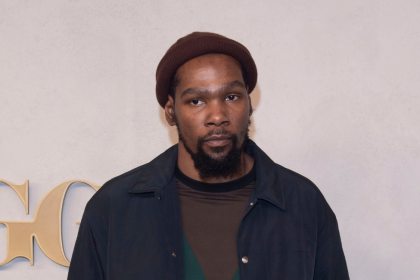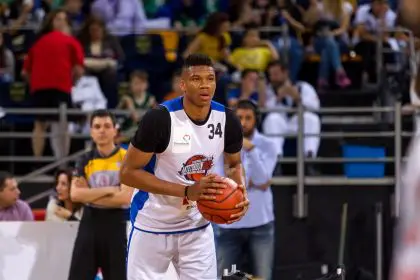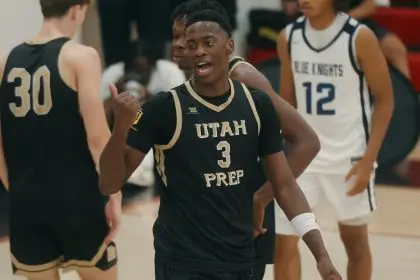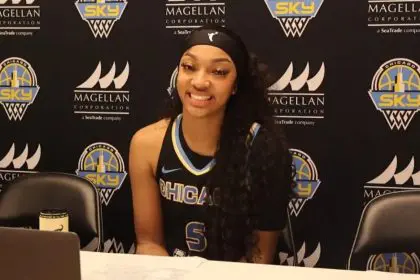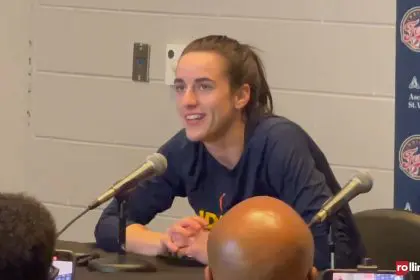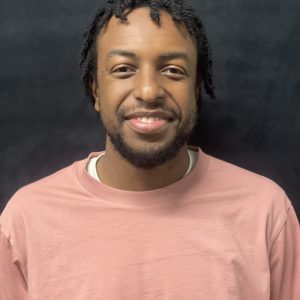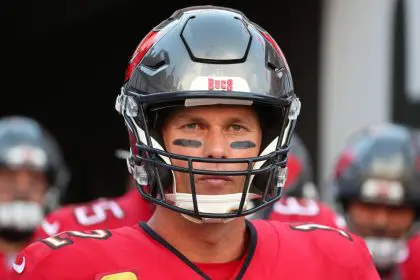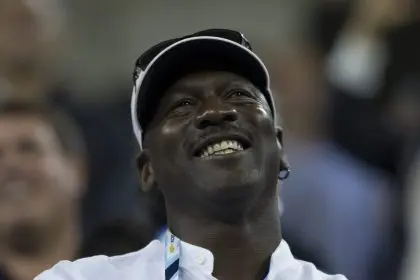Ben Wallace is the poster child for basketball underdogs. The six-foot-nine center, who said he was closer to six-foot-seven, was undersized for his position. He sought higher education at a junior college before finishing at a Division II HBCU. He went undrafted in the 1996 draft and began his professional career overseas in Europe before finally getting an NBA tryout. After spending his first four seasons with the Washington Wizards and Orlando Magic, he found his home in Detroit with the Pistons.
His ferocious play and trademark defense led him to win the 2004 NBA championship, be a two-time rebounding champion, and be named a four-time Defensive Player of the Year. His accolades were enough to make him the first undrafted player in NBA history to be inducted into the Pro Basketball Hall of Fame.
To celebrate his historic accomplishment, AND1, the brand Wallace has been signed to since 2000, released the documentary The Chosen One.

Wallace shared his thoughts about the documentary and the state of the NBA today.
What does being with AND1 for almost a quarter-century now and having them do this documentary mean to you?
It’s good to be able to know you built a relationship that withstood the test of time. We, as players, talk and think about our longevity as players. But I think [building] a relationship that can last far after your playing days are over is a testimony to who you are.
What effect did the HBCU experience have on you?
The HBCU experience, man, was a great one. I tell people, I can sit here and talk all day and tell you about it, but until you get a chance to experience it, you’re always going to be left out and you’re always going to be missing something. It was a great experience for me.
In the documentary, you discussed how the city of Detroit correlates with your brand. What makes the city of Detroit so special?
The city of Detroit, man, has some hard workers, dedication, self-motivation. Detroit is one of those places where they don’t take excuses; they go out and get it done. That’s the way I approached the game of basketball, go out and try to get it done.
What do you think of the level LeBron James is still performing at now?
I’m not surprised the way Bron’s career is going. I had the opportunity to play with Bron. I saw how he works out and takes care of himself before and after games. So I’m not surprised he’s still going strong the way he’s going right now.
Does it irk you to watch NBA teams scoring 120 points a night now?
It irked me seeing teams scoring 90 points a night, but that’s today’s game. In today’s game, you have to be able to fill the bucket up in order to win. But I would like to see the game get back to playing defense so we can separate the great offensive players from the average offensive players.
What rules can Adam Silver implement to make the league as watchable as it used to be?
I think that’s more of a competition thing. The competition committee has to get together and figure it out. Like myself, I’m a little bit older, so I’ll always lean more towards the older style of basketball and the way we played the game. But that might not translate in today’s game. So we’ve got to find a happy medium between what works on the defensive end versus what doesn’t work, where we still can allow our guys the freedom to go out there and express themselves on the offensive end.
Where do you think the scoring overload came from? Youth coaching?
It’s a combination of things. The biggest thing is parenting. As parents, we went a little too hard. We came through the baby boom where we didn’t have a lot. We figured, well, once we get the opportunity, we will go spoil our kids and make sure they have everything we always wanted. Now, we look at our kids; the youth is just a smaller version of ourselves; we’ve given ourselves everything we wanted, so sometimes we’ve got to step back as parents and understand we went hard to make sure our kids had everything they could possibly want and we’ve got to take a little bit of the blame.

